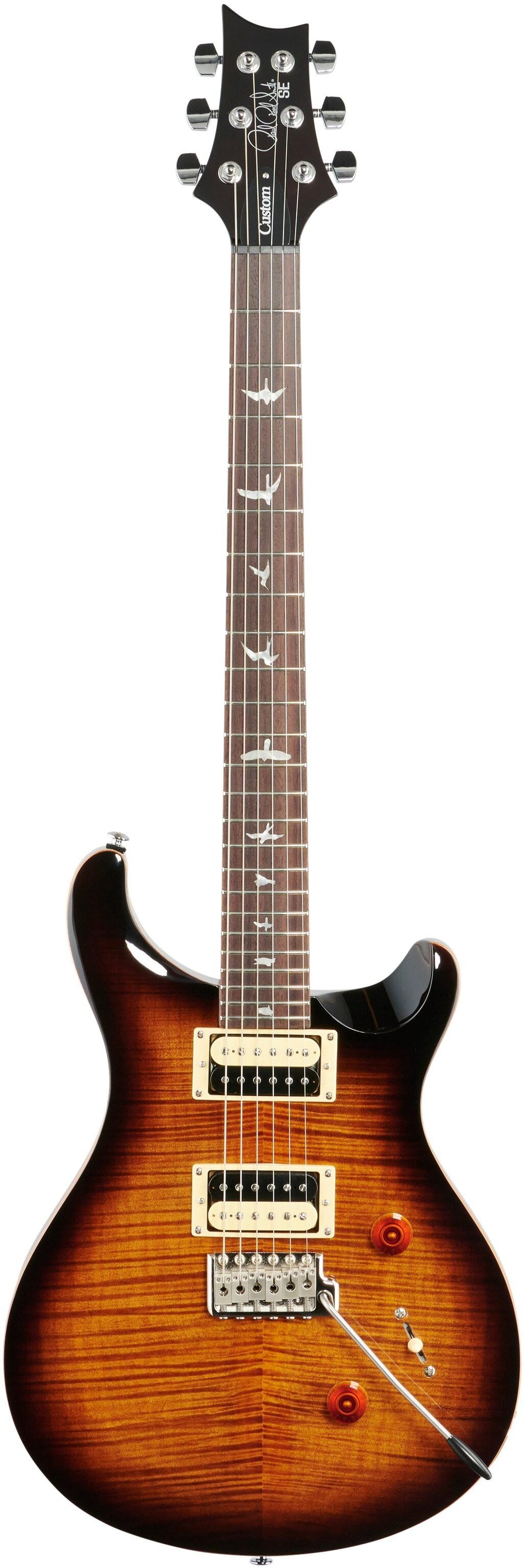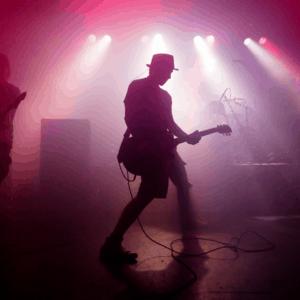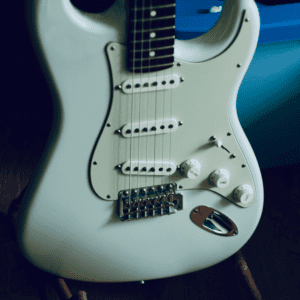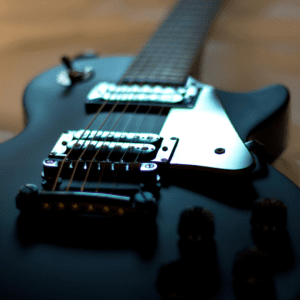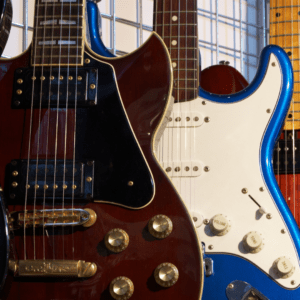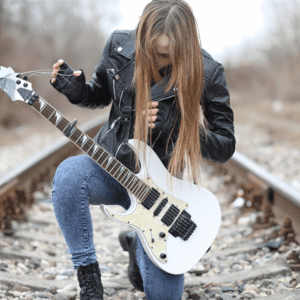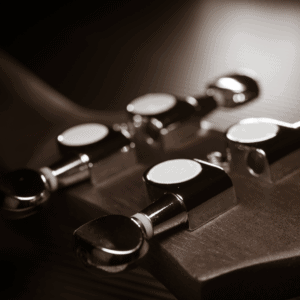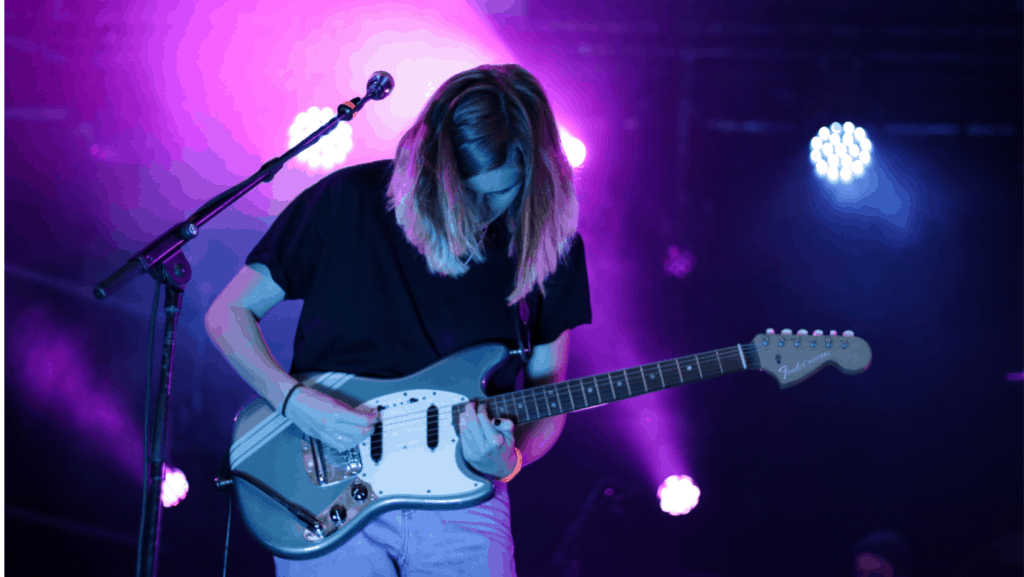
Whenever we talk or think about reggae music, some images always come to our minds. Oftentimes, the particular image that comes to our minds is that of a Rastafarian with dreadlocks and a guitar strapped around his neck. Although many musical instruments are being used in reggae, the guitar remains one of the most significant. The guitar is quite significant to both the sonic and visual image of reggae music. The guitar is almost if not actually synonymous with reggae.
That being said, if you are a reggae guitar player, the reggae guitar you use will not only impact your sound but greatly affect the overall sound of your band or ensemble. So, choosing the right reggae guitar becomes quite an important aspect of not just “reggae guitar playing” but reggae music as a whole. In this article, I will present to you, five best reggae guitars.
- Best budget-friendly guitar for reggae: Fender Stratocaster
- Best reggae guitar for chuck/chop and chicken picking sound: Fender Telecaster
- Best semi-hollow electric guitar for reggae: Epiphone Sheraton
- Best medium-jumbo frets guitar for reggae: PRS Custom 24
- Best acoustic guitar for reggae: Epiphone songmaker DR-100
5 Best Reggae Guitars Reviewed
Best budget-friendly guitar for reggae: Fender Stratocaster
Fender Stratocaster remains the most popular guitar in reggae music. One of the greatest reggae musicians to ever walk the earth in the person of Bob Nester Marley at one point used this guitar. Not many reggae guitarists are aware of that. When you watch Bob Marley’s “Stir It Up” video, you’ll get to see it for yourself.
This guitar is also Eric Clapton’s main guitar. This is also the guitar that he used on his cover version of I Shot The Sheriff. Apart from being one of reggae music’s treasures, Stratocasters are a very versatile type of guitar. Any serious reggae guitarist who cares about his/her sound needs to have at least one start in his/her guitar collection.
This was the first guitar Bob Marley owned as a reggae musician. Apart from being the most popular in the reggae community, it is also the most popular guitar in the world and it even affects our perception of the look and sound of the electric guitar. Fender Strats have quite a lovely sound. The tone is a mixture of warmth, brightness, and everything beautiful. They are just fantastic. Being a very versatile electric guitar, it fits perfectly well into many other genres. However, the best fit for this guitar is reggae music. The iconic reggae “quack” sound always comes out perfectly on the Fender Strat.
When playing this guitar, you will simply tell that it was designed with comfort and ease of play in mind. The Fender Strat is also very much customizable as you can make it sound however you want it to. If you don’t like the tone, you can take out the pickup and switch it with the one you love.
Pros
- Great guitar for genre straight out-of-the-box
- Comes in an affordable Squier series
- Ideal for iconic Reggae sounds like the “quack”
- Very versatile and affordable
Cons
- Can’t think of any
Best reggae guitar for chuck/chop and chicken picking: Fender Telecaster
Although the Strat might be the most popular reggae guitar, the Tele remains one of the best-suited guitars for reggae music. For a perfect chuck/chop sound, the Tele is always the go-to guitar. It is common practice for reggae lead guitarists to play along with the bass line while muting the strings. With the Telecaster, this technique sounds just awesome.
The chicken picking sound of the Telecaster is also very identical to most of the lead sounds you hear in many reggae songs. Also, the natural brightness of the Telecaster makes it even more ideal for reggae strumming and solos. The Tele has a lush and bright tone that adds entirely beautiful color to reggae when played. Aesthetically, the Telecaster beats many other reggae guitars; it is super attractive. Because of the way they design the pickups of the Telecaster, they give a very desirable high pitch reggae sound. Whether you play it live on stage or record in the studio, trust the Tele to cut through the mix and sit exactly on top of all the instruments and voices. It is naturally a lead instrument. The frets of the Telecaster are tiny, so it doesn’t even matter if you are a beginner or pro player, you will definitely play the Telecaster with ease.
Pros
- A combination of simple and sturdy makes it one of the best reggae guitars for players of all levels
- One of the easiest and most comfortable guitars to play on the planet
- The overall tonal quality makes it super perfect for Reggae
- The Telecaster is super attractive
Cons
- Not basically the most affordable kind of guitar
- The pickup can be occasionally noisy
Best semi-hollow electric guitar for reggae: Epiphone Sheraton
Although this might be a bit on the high side, it is still one of the best guitars from the Epiphone line of guitars. When it comes to reggae, Epiphone is not totally out of it as legends like Bob Marley also made use of brands like this – the Epiphone FT 165 12-String precisely.
When you first pick up the Epiphone Sheraton to play, you will notice immediately that it produces such an amazing tone for its price range. You can play and experiment with different reggae techniques and tricks on this and all the notes will ring out and sound great. The Epiphone Sheraton, although a semi-hollow guitar, is still very versatile as you can play different genres and styles with it too.
It comes with very nice pickups and the F-holes help the music ring out nice and clear. It has a clean and flawless tone; the unique semi-hollow tone also adds some color and character to reggae when used. Although not basically a beginner kind of guitar, it is still an amazing guitar all the same.
Pros
- It has a fat hollow-body guitar sound that will bring some uniqueness to your reggae sound
- It looks great and comes with plenty of extra features
- Comes with full tone and volume controls for the pickups
- Amazing sound at this price
Cons
- For a brand like Epiphone, this is quiteexpensive
- Because of its size, beginners will struggle to play
Best medium-jumbo frets guitar for reggae: PRS Custom 24
The PRS is more like the underdog of the reggae guitar community. It is amazing but greatly underrated. When you pull out the Custom 24 from its weighty, hard case, the first thing that captivates you is the craft. You don’t even have to be a guitar player to notice the perfection and beauty. You just can’t help but be impressed by the craft. Although the cost justifies the craft – you can’t expect less with that price, this is still super amazing for production guitar-making. The PRS is beautifully weighted. It feels like a supermodel with its perfect aesthetic.
The design of the PRS puts it in between two amazing guitars which are the Gibson Les Paul and the Fender Stratocaster. Both in the overall build style and the sounds, the PRS lies right in the middle of the Gibson Les Paul and Fender Strat. When it comes to the feel and sound, the PRS is less bulky. Although there’s something of the Stratocaster’s feel in the lighter weight and strapped-on feel, sonically the PRS is more Gibson than it is Fender.
Pros
- Works well with other genres and can be used to play many forms of Reggae
- Excellently built
- Very playable
Cons
- The tone sounds a bit muffled
- Expensive
- The options are limited
- None for lefties
Best acoustic guitar for reggae: Epiphone songmaker DR-100
Reggae music is not only centered around electric guitars. Acoustic guitars are also part and parcel of original reggae sounds. Every great reggae musician played and still plays acoustic guitars. It is quite useful in every playing scenario, be it jam sessions, rehearsals, stage performances, or studio recordings, acoustic guitars also “rock.” Like I said before, Epiphone also has a stronghold in the reggae community just like the other top brands.
The Epiphone Songmaker DR-100 was and remains Epiphone’s best-selling acoustic guitar. It has the look, feel, sound, and overall build quality that beginner and seasoned players expect when choosing an Epiphone guitar. It features a select spruce top, premium tuners, and a beautiful mahogany body. For every guitar made by Epiphone, there is a Limited Lifetime Warranty and a supporting Gibson Brands™ Customer Service. The DR-100 is super affordable and it comes with a rosewood fingerboard with dot inlays.
Pros
- Considering the price, it sounds super amazing
- Feels perfect for both beginner and pro players
- Affordable for most people
Cons
- To some players, it might sound a little flat
- At the initial stage, it will require frequent tuning
- Minor fret buzz might occur
Buying Guide for Best Reggae Guitars
What Makes A Guitar Perfect for Reggae?
The truth is that almost any guitar can be used for reggae. But, some guitars fit reggae music better than some guitars do. Reggae generally relies on a very clean guitar sound void of effects and processing (there are always exceptions). Carefully listening to some reggae classics will only testify to this. I love citing Bob Marley because he is unarguably the face of reggae music. Bob Marley almost never made use of effects and pedals. The effects you hear on some of his recordings were not used by Bob Marley but by some other backing band members. Watching his live shows, you will see that he was most times the guy with just a guitar plugged into a not-very-fancy amp.
Because reggae relies on a clean guitar sound, you need a guitar that naturally sounds good without effects or heavy processing. Also, because the guitar is a major instrument in reggae, you also need a guitar that is naturally bright and loud enough to cut through the mix during live performances and studio recordings. There are certain genres in which guitars play a rather subtle and ‘not-very-loud’ role; in genres like that, you can do with a somewhat muffled and sunken guitar sound.
Even when playing rhythm in reggae, the “quack,” and “chuck” rhythm sound needs to cut through and be heard over other instruments. You don’t bury the “quack” and “chuck” sound in reggae, you let it shine because that is more like the instrumental emblem of reggae music. Also, you need a guitar that can execute the “wah-wah” effect perfectly and also gives a sweet percussive sound when palm muted. In general, reggae relies on a very natural guitar sound modulation. On that note, you need a guitar that is just loud and sweet enough without relying on added accessories like stomp-boxes and amps. Lastly, your reggae guitar has to look super sleek!
Acoustic or Electric?
For the most part, an electric guitar is always best for reggae. This however does not mean that acoustics don’t work, there are times you will need to get on stage with the acoustic guitar too. By saying that electric guitars work, for the most part, is just my opinion. The truth is that there are as many reggae musicians who rely solely on acoustic as there are those who rely solely on electric. However, to make an informed decision, you only need to know the major differences between an acoustic and an electric guitar.
I normally advise if you are just starting out on playing the guitar, get an acoustic guitar first. Acoustic guitars are very versatile and handy as they need no form of amplification to produce sound. Also, transiting from acoustic to electric is normally very easy than trying it the other way round (electric to acoustic). The fact that acoustics are physically tougher to play makes it good for beginners as it will help you develop the needed finger strength to conquer any kind of guitar. But the opposite is the case with electric guitars. They are physically less challenging and paying solely electric at your begging stage will make transitioning to acoustic very tough and super challenging.
However, in the case of more advanced players looking to purchase a guitar for reggae, it comes down to preference. But the truth is that the guitar sound our brains have come to identify as the original reggae sound over the years is that of an electric guitar. So to answer the question, I will always place the electric over the acoustic in the world of reggae. Maybe for solo performances and small jam sessions, the acoustic can lead – but for the “real deal,” the electric leads.
Solid-Body or Hollow/Semi-Hollow Body?
For reggae, I will always rate the solid body over the hollow/semi-hollow body. The hollow/semi-hollow body guitars have a unique and sweet tone that we cannot really say is traditional to reggae. But the bright and “cut-through” tone of solid body guitars like the Strat and Tele is just what we have come to know and recognize as the authentic reggae guitar tone. But if your goal is to sound a little “not-so-reggae,” then feel free to deviate. But hollow/semi-hollow body guitars are amazing too.
How Much Should You Spend?
Don’t spend a fortune but don’t also go too low. Reggae guitars have to sound good naturally without heavy modulations and processings. On that note, you need to invest in a good guitar. The saying “you get what you pay for” is nothing but true.
Conclusion and Winner(s)
After putting everything listed here into consideration and also listening to several reggae recordings, I have come to a conclusion. The Stratocaster might be the most popular reggae guitar greatly because of its affordability but the Fender Telecaster, in my opinion, is the best reggae guitar. For a clean and perfect chuck/chop sound, the Tele is always the go-to guitar. The overall tone and natural brightness of the Telecaster make it just perfect for reggae rhythm and solo playing. The Telecaster also looks super attractive.
But if you don’t have the money to spend on the somewhat pricey Telecaster, the Fender Stratocaster is another amazing guitar for reggae. Used by legends like Bob Nester Marley, Eric Clapton, and a lot of others, the strat might not be the best reggae guitar but it is the most popular. The overall build, tonal quality, and price of the strat make it an amazing choice for most beginner and seasoned reggae guitarists.



